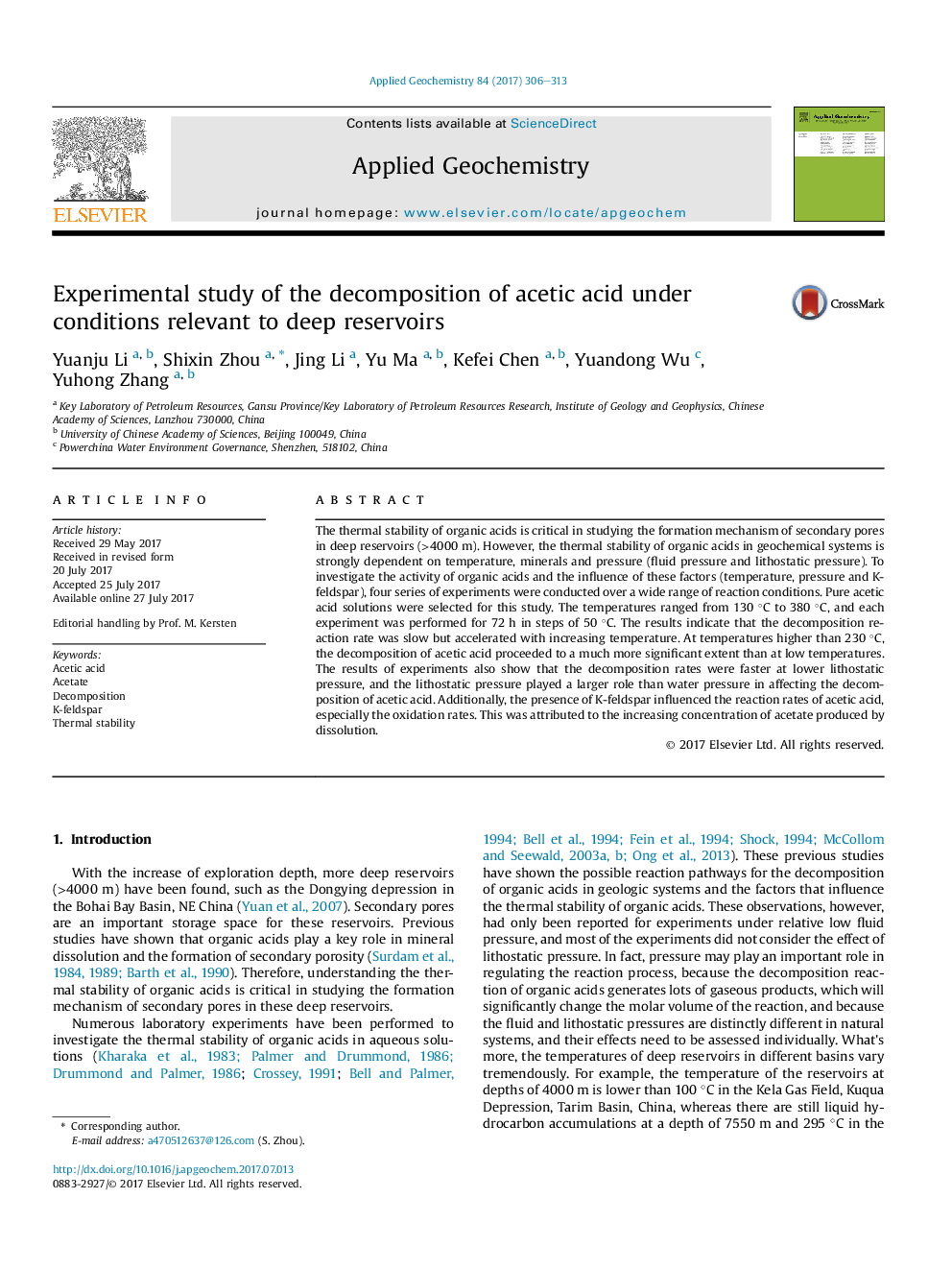| Article ID | Journal | Published Year | Pages | File Type |
|---|---|---|---|---|
| 5752532 | Applied Geochemistry | 2017 | 8 Pages |
Abstract
The thermal stability of organic acids is critical in studying the formation mechanism of secondary pores in deep reservoirs (>4000 m). However, the thermal stability of organic acids in geochemical systems is strongly dependent on temperature, minerals and pressure (fluid pressure and lithostatic pressure). To investigate the activity of organic acids and the influence of these factors (temperature, pressure and K-feldspar), four series of experiments were conducted over a wide range of reaction conditions. Pure acetic acid solutions were selected for this study. The temperatures ranged from 130 °C to 380 °C, and each experiment was performed for 72 h in steps of 50 °C. The results indicate that the decomposition reaction rate was slow but accelerated with increasing temperature. At temperatures higher than 230 °C, the decomposition of acetic acid proceeded to a much more significant extent than at low temperatures. The results of experiments also show that the decomposition rates were faster at lower lithostatic pressure, and the lithostatic pressure played a larger role than water pressure in affecting the decomposition of acetic acid. Additionally, the presence of K-feldspar influenced the reaction rates of acetic acid, especially the oxidation rates. This was attributed to the increasing concentration of acetate produced by dissolution.
Related Topics
Physical Sciences and Engineering
Earth and Planetary Sciences
Geochemistry and Petrology
Authors
Yuanju Li, Shixin Zhou, Jing Li, Yu Ma, Kefei Chen, Yuandong Wu, Yuhong Zhang,
